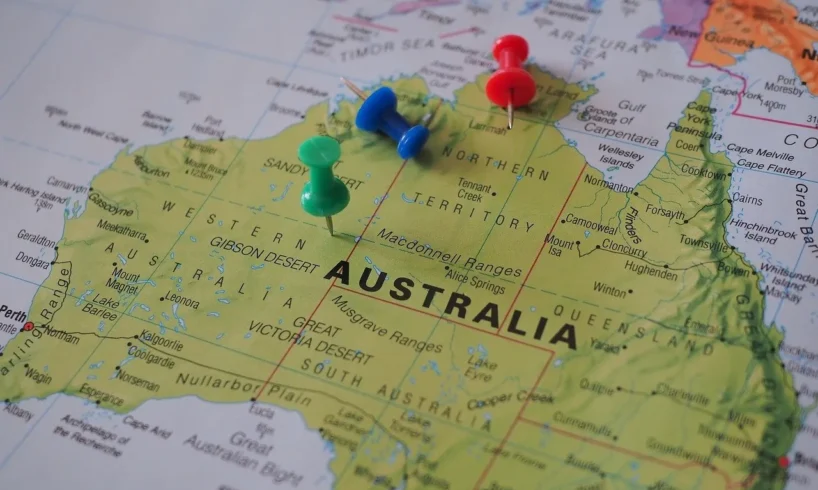
In a dramatic display of political dissent, Australian Indigenous Senator Lidia Thorpe faced censure from the Senate following her protest against King Charles. Unbowed by the formal reprimand, Thorpe declared her unwavering commitment to her cause, stating, “I will not be silent.” Her protest, which has sparked a national conversation on Indigenous rights and Australia’s ties to the monarchy, has also drawn sharp criticism from political peers who view her actions as disrespectful.
The conflict unfolded during a recent session in the Senate, where Thorpe chose to voice her disapproval of the monarchy by interrupting proceedings with a protest that many saw as controversial. Her actions have since been met with both condemnation and support, highlighting a deep-seated divide in public opinion on the role of the British monarchy in contemporary Australia.
A Protest in the Halls of Power
The incident occurred on November 17, 2024, within the hallowed chambers of Australia’s Senate in Canberra. Senator Thorpe, a member of the Australian Greens and a staunch advocate for Indigenous rights, made headlines when she disrupted a session dedicated to addressing the ceremonial role of King Charles in Australian governance. Her protest was a direct challenge to the institution that she claims does not acknowledge or respect the sovereignty of Indigenous Australians.
Thorpe’s vocal opposition was not without precedent. She has long been an outspoken critic of colonial structures and their lingering impact on Indigenous communities. Her protest culminated years of advocacy, amplified by the recent visit of King Charles, which reignited debates over Australia’s constitutional ties to the British Crown.
Senate’s Reaction and Public Response
The Senate swiftly responded to Thorpe’s actions with a formal censure, a rare and severe rebuke that serves as an official expression of disapproval. Senate leader Simon Birmingham articulated the majority view, describing Thorpe’s actions as “disrespectful to the traditions and procedures of the Senate.” This censure, however, did little to quell the public discourse surrounding the protest itself.
The public response has been polarized. Supporters of Thorpe argue that her protest was a necessary act of defiance, shining a light on issues that have long been marginalized in national discussions. On the other hand, critics argue that the Senate is not the appropriate venue for such demonstrations and that respect for protocol is paramount.
Indigenous Voices and Historical Context
Thorpe’s protest taps into a broader historical narrative that has long been simmering in Australia. The country’s Indigenous communities have consistently called for greater recognition and redress of past injustices, including land rights and sovereignty. Thorpe’s actions echo many Indigenous leaders who have sought to shake the status quo and demand meaningful change.
Expert voices in Indigenous affairs have weighed in on the protest, noting that it brings attention to the ongoing struggle for Indigenous rights in Australia. A prominent Indigenous academic, Dr. Marcia Langton, stated, “Senator Thorpe’s protest highlights the need for Australia to confront its colonial past and engage in genuine dialogue with its First Nations peoples.”

The Monarchy’s Role in Modern Australia
The protest has also reignited discussions about the monarchy’s relevance in Australia today. With King Charles now on the throne, questions regarding Australia’s constitutional ties to Britain have gained renewed urgency. Many Australians see the monarchy as an outdated institution that fails to reflect the country’s diverse and multicultural society.
The debate over becoming a republic has been a recurring theme in Australian politics. Thorpe’s protest adds fuel to this ongoing conversation, pushing the nation to reconsider its ties to the British Crown and the possibility of establishing an independent republic.
Implications and Future Conversations
As the dust settles on this latest political storm, the implications of Thorpe’s protest and the subsequent Senate censure will likely reverberate through Australian society. The protest challenges the status quo and catalyzes deeper discussions on Indigenous rights and Australia’s constitutional future.
Thorpe remains resolute, her protest sparking a dialogue that many believe is long overdue. The conversation around Indigenous sovereignty and the monarchy’s role is expected to continue, with potential implications for policy and public opinion. As Australia grapples with its identity and future, the voices of its Indigenous leaders will undoubtedly play a crucial role in shaping the path forward.

Carl Riedel is an experienced writer focused on using Open Source Intelligence (OSINT) to produce insightful articles. Passionate about free speech, he leverages OSINT to delve into public data, crafting stories that illuminate underreported issues, enriching public discourse with perspectives often overlooked by mainstream media.






